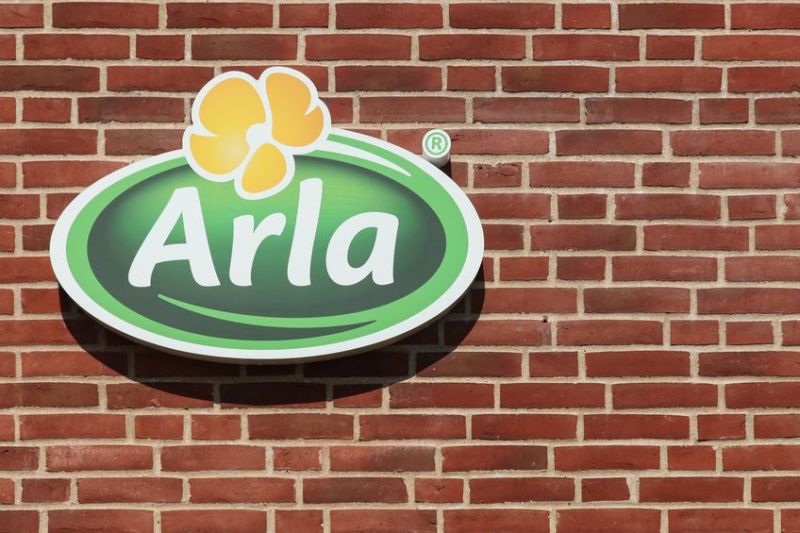
Arla is set to introduce a sustainability incentive for farmers to help fund and motivate actions required to hit the co-op's 2030 emission reduction target.
From next year, the milk price that farmers will receive from the co-operative will depend on their activities related to environmental sustainability.
This marks a fundamental change in Arla’s milk price model, which previously paid farmers based on the fat, protein, and quality of the milk.
The dairy co-op has earmarked up to 3 eurocent per kilo of milk for sustainability activities in addition to the existing 1 eurocent for submitting Climate Check data.
Based on the cooperative’s current milk volume, Arla says this corresponds to a total of up to 500m euros (£438m) annually.
The model is a point-based system, in which the farmers can collect points based on their activities on the model’s 19 different levers.
These include feed, protein and fertiliser efficiency, manure delivery to biogas, biodiversity, carbon farming and use of renewable electricity and deforestation free soy.
Eighty points will be available from the start in 2023 and further 20 points for new levers are expected to be built into the model within a few years, leading to a total of 100 points.
For each point that farmers are able to achieve, they will receive 0.03 eurocent per kilo of milk.
Activities with bigger improvement potential will lead to the most points – and therefore also the biggest financial incentive.
Arla’s chairman, Jan Toft Nørgaard said the Sustainability Incentive model was a 'historical milestone' in Arla’s transition to more sustainable dairy.
"We are introducing an advanced and ambitious sustainability incentive, which is a fundamental change to our milk price model," he said.
"Going forward, the milk price Arla farmer’s will receive for their milk will not only depend on fat, protein and quality, it will also depend on their activities on sustainability.
"The support from our members, even in a time of great uncertainty, is a testament to our commitment to be at the forefront of progressive dairy farming and set the standard for how to push our whole sector forward."
In the first full year, Arla says at least 270m euros (£236m) is expected to be distributed through the monthly milk price based on what the farmers are doing on the 19 levers.
For an average farmer with an annual milk production of 1.2 million kg, it means that around 26,000 euro (£23,000) of the milk price is achieved based on their activities related to environmental sustainability.
However, the average pay-out might increase even for the first year, Arla explains, as some farmers are expected to go for as many points as possible from the start, like shifting to renewable electricity during 2023.
The first incentive payment will be paid out as part of the monthly milk price in August 2023, based on milk delivered in July.
